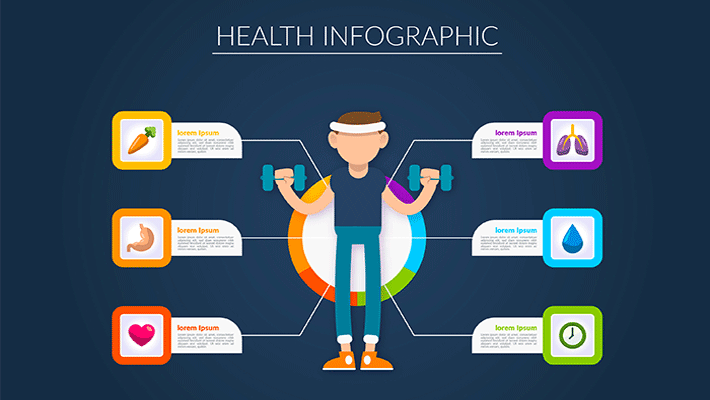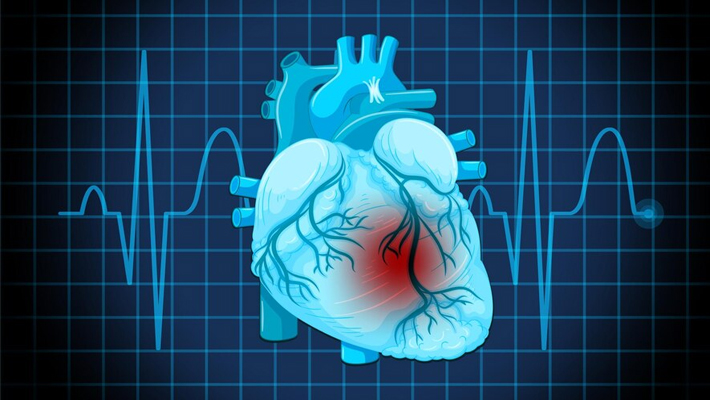
As adults, we often take our kidneys for granted and overlook their importance. However, the kidneys play a crucial role in the body’s health and wellbeing. They are responsible for filtering out waste from the body and regulating blood pressure. Without strong and healthy kidneys, our bodies can easily become overwhelmed by toxins and other substances.
That's why it is so important to maintain strong kidneys throughout life. Doing so will help ensure that your body is functioning properly and that you remain healthy for many years to come.
In this article, we will discuss 5 key habits for maintaining strong kidneys. We will explain why each habit is important, how to do it properly, and what potential benefits you may experience as a result.
Get Your Kidney Function Tested Regularly
Maintaining strong kidneys can be challenging, but it's worth the effort! To make sure your kidneys stay healthy, get your kidney function tested on a regular basis. This will help you monitor how well your kidneys are working and identify any potential issues early. Your testing may include blood tests to measure levels of certain chemicals in your blood that can be markers for kidney disease or damage, urine tests to measure the amount of certain substances in your urine, or imaging tests to look for any problems or abnormalities in the shapes and sizes of your kidneys.
Testing should be done at least once a year to create a baseline reading and monitor changes over time. Your doctor may suggest more frequent testing if you have a higher risk of developing kidney disease due to age, family history, or other medical conditions. Talking with your doctor about when is best for you to get tested, and implementing regular tests as part of your health routine will ensure that you’re taking proper measures to support healthy kidney function.
Keep Blood Pressure in Check
The kidneys play an important role in regulating blood pressure and for this reason, maintaining a healthy blood pressure is essential for keeping your kidneys in shape. High blood pressure can put strain on your kidneys and over time, this strain can damage them.
If you want to keep your kidneys healthy, it’s important to monitor your blood pressure regularly. Many doctors recommend checking your blood pressure once a year and keeping track of the results. You should also make sure to get plenty of exercise and eat a balanced diet that’s low in salt and fat. Exercise helps maintain a healthy weight, which can help keep your blood pressure at a healthy level and reduce the risk of chronic kidney disease. Eating foods that are low in salt and fat keeps cholesterol levels low, which is also important for maintaining strong kidneys.
“In Chronic Kidney Disease (CKD) the injury or damage to the kidney happens over time (months and years, most commonly due to diabetes and hypertension). In these conditions, it may not be possible to bring kidney function back to normal but with good control of risk factors and follow up it may be possible to slow or stop further damage to the kidneys. “, says Dr. Ajay Kher, Director and Senior Consultant Nephrology, MBBS (AIIMS).
Cut Back on Salt and Processed Foods
One of the easiest ways to keep your kidneys healthy is to avoid too many salt and processed foods. It's important to maintain a balanced diet of fresh fruits, vegetables and lean proteins while avoiding over-processed foods with preservatives, added sugar, artificial sweeteners and other refined ingredients. Eating these types of foods leads to an increased risk of developing kidney stones or other kidney diseases. Salt should also be limited since it causes your body to retain fluid, placing extra stress on your kidneys as they have to work harder to filter out the excess salt. Aim for about 5-6 grams (or one teaspoon) of salt per day - any more than that can lead to dehydration, tiredness and difficulty concentrating.
Processed meats like bacon, hot dogs, cold cuts and hamburgers are also not great for your kidneys as they contain a lot of sodium and unhealthy fats. If you do eat these types of meats, opt for low-sodium varieties or look for organic options with no additives.
Drink Plenty of Water and Exercise Regularly
Drinking plenty of water and exercising are two essential habits for maintaining strong kidneys. By staying hydrated, your body will be better able to flush out the toxins that can build up in your blood and reduce your risk of kidney disease. The average adult should aim to drink 2-3 litters of water daily.
In addition to rehydrating, regular exercise helps keep your heart strong and lower your blood pressure, which is key for healthy kidneys. Exercise also helps with weight management, which can reduce the strain on the kidneys caused by being overweight or obese. A moderate program of 30 minutes a day of aerobic activities like walking, cycling and swimming is a great place to start. Make sure to take breaks when needed and listen to your body - if you feel any pain or discomfort, stop exercising immediately and seek medical attention if needed.
Reduce Protein Intake to Support Kidney Health
Maintaining a healthy diet is pivotal to keeping your kidneys functioning optimally. To support your kidneys, reducing protein consumption is key. Though proteins are an important part of any diet, over consuming them can place a strain on your kidneys. Eating too much protein can even cause kidney damage in the long term. Reducing your protein intake does not mean you need to forgo tasty, nutritious meals. You can still get the proteins you need from healthy sources such as lean meats, eggs and legumes, while also eating plenty of fruits and vegetables for additional vitamins and minerals. In addition, drinking between 8-10 glasses of water per day is essential for helping flush toxins from your body, including those from any excess amino acids in proteins. Replenishing liquids lost during sweating or physical activities and ensuring your body remains well hydrated helps to reduce the burden on your kidneys and keeps them healthy in the long term.







